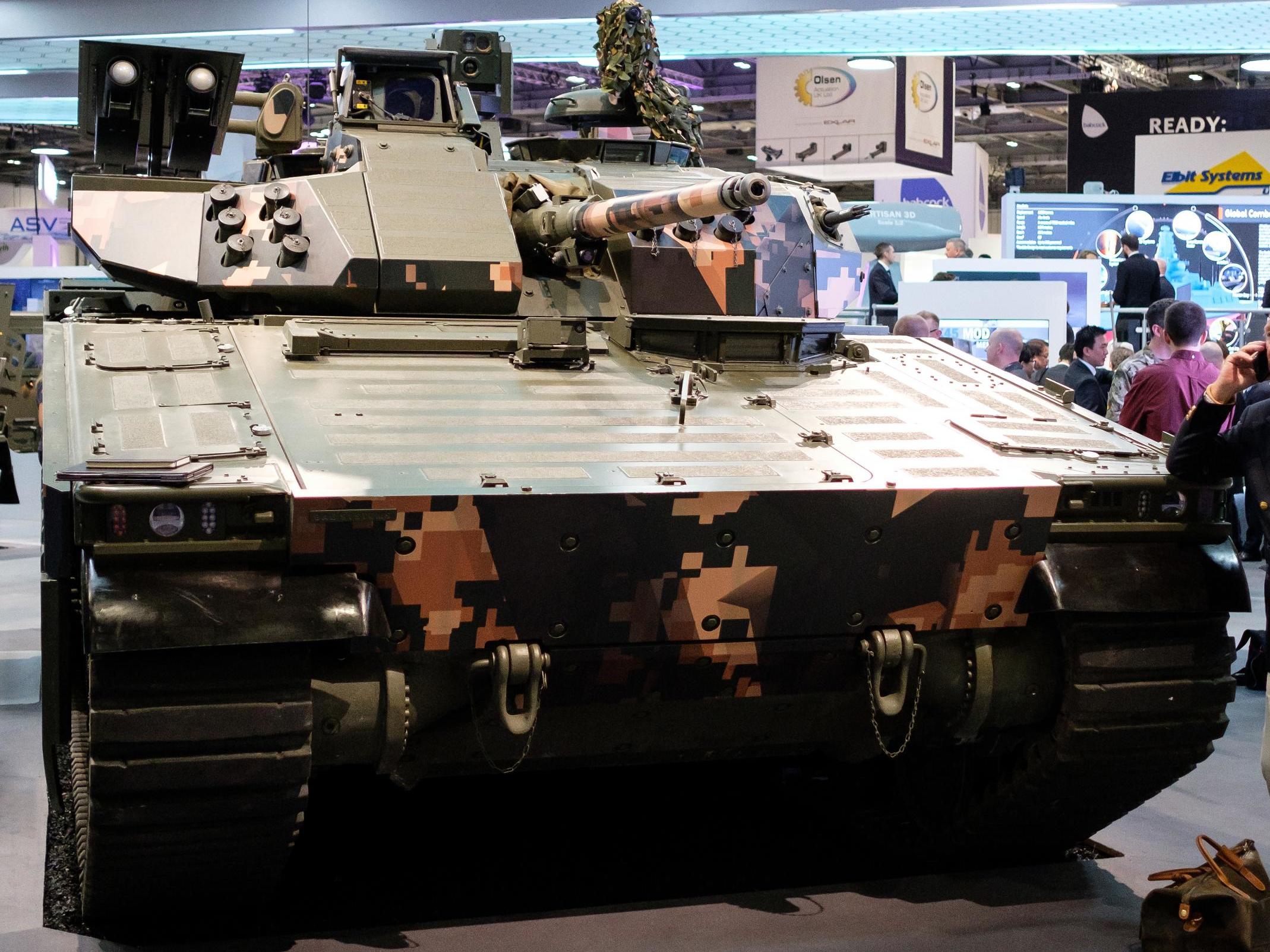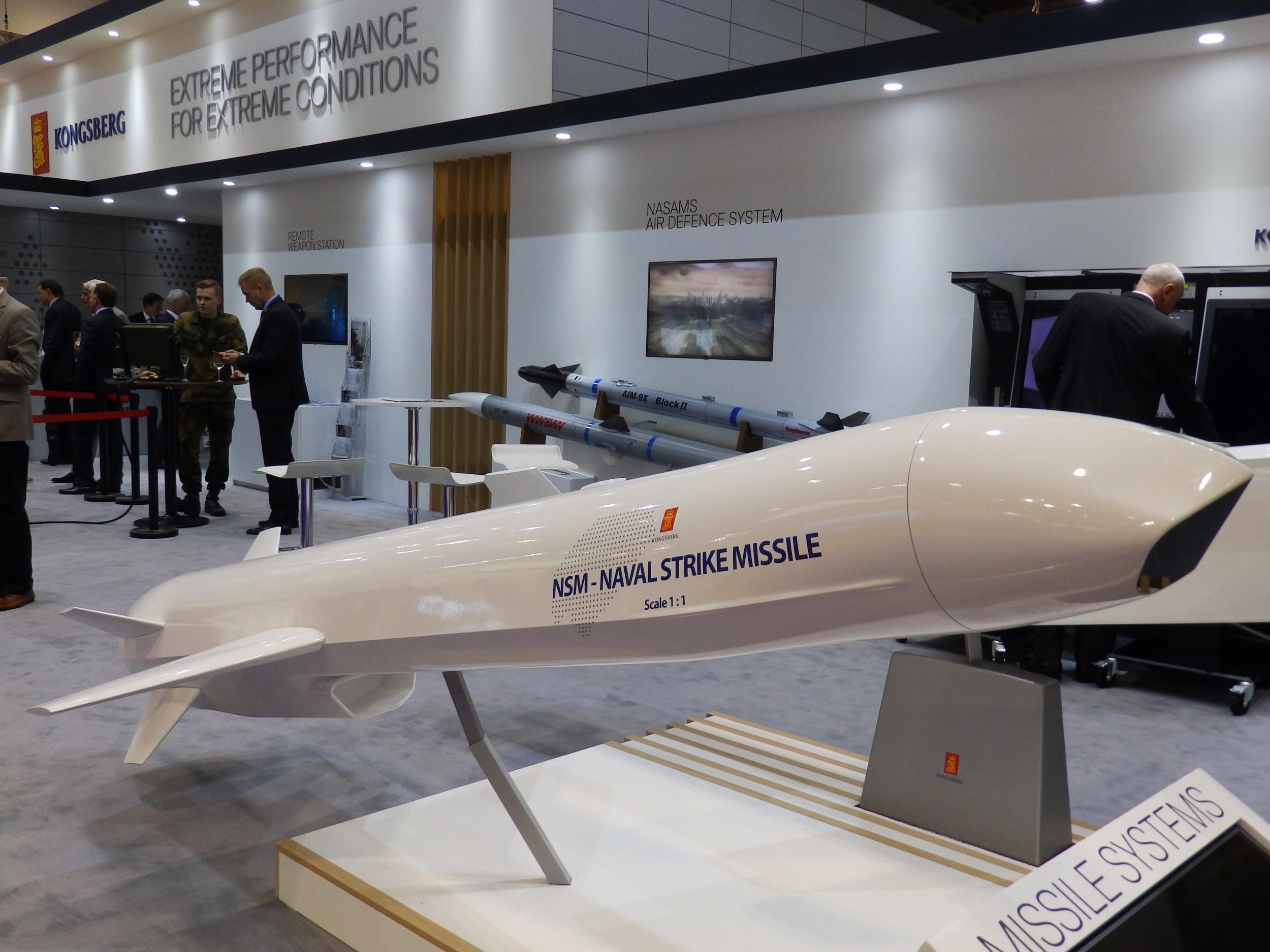British government invites Saudi Arabia to world's largest arms fair despite court ruling sales are unlawful
Exclusive: State-owned Saudi arms company to exhibit at DSEI as government appeals court judgment

Your support helps us to tell the story
From reproductive rights to climate change to Big Tech, The Independent is on the ground when the story is developing. Whether it's investigating the financials of Elon Musk's pro-Trump PAC or producing our latest documentary, 'The A Word', which shines a light on the American women fighting for reproductive rights, we know how important it is to parse out the facts from the messaging.
At such a critical moment in US history, we need reporters on the ground. Your donation allows us to keep sending journalists to speak to both sides of the story.
The Independent is trusted by Americans across the entire political spectrum. And unlike many other quality news outlets, we choose not to lock Americans out of our reporting and analysis with paywalls. We believe quality journalism should be available to everyone, paid for by those who can afford it.
Your support makes all the difference.The British government has invited Saudi Arabian representatives to the world’s largest arms fair, despite judges ruling the sale of weapons used in Yemen unlawful.
Graham Stuart, the minister for trade, confirmed a Saudi delegation would be invited to the controversial Defence and Security Equipment International (DSEI) event following a parliamentary question.
Liberal Democrat MP Wera Hobhouse called the invite “extremely irresponsible”.
“The Saudi government does not share our liberal values,” she told The Independent.
“Their dismal record on human rights and the rule of law should have disqualified them as an arms trading partner long ago.
“Inviting a Saudi delegation to DSEI sends entirely the wrong message. It suggests that we are still open to do business with them and gives the Saudi regime our tacit endorsement.”
The UK has licensed nearly £5bn of arms exports to Saudi Arabia since the start of the Yemen war, where Riyadh leads a coalition conducting airstrikes in support of president Abdrabbuh Mansour Hadi.
Human rights groups have found evidence of British-made bombs at the scenes of war crimes, and research estimates that Saudi-led bombing has killed more than 8,000 civilians.
Protests are expected to greet DSEI when it arrives at London’s Excel Centre in September, with organisers boasting of its “unrivalled scale”.
Government ministers are to deliver speeches as the world’s largest arms producers sell their wares, including bombs, planes, drones, guns and tanks.
Eurofighter jets and Paveway bombs of the kind being used by Saudi forces in Yemen are expected to be promoted to international militaries.
The United Arab Emirates, which is part of the Saudi-led coalition bombing the country, is listed as a “platinum partner” on DSEI’s official website.
It says the state-owned Saudi Arabian Military Industries firm will also be among exhibitors.
The biennial arms fair is organised by Clarion Events but sponsored by the Ministry of Defence and the Defence and Security Organisation (DSO) – part of the Department for International Trade.
At the last DSEI in 2017, international trade secretary Liam Fox claimed that British weapons exports were “ethical”.
“Those of us from advanced economies must remember that if we do not provide countries with means of defending themselves, then we will see a proliferation of uncontrolled and unregulated arms sales free from oversight or inhibitions,” he claimed.
But in June, Court of Appeal judges found that his decision to continue selling arms to Saudi Arabia for use in the Yemen war was “irrational and therefore unlawful”.
A ruling said the government “made no concluded assessments of whether the Saudi-led coalition had committed violations of international humanitarian law in the past, during the Yemen conflict, and made no attempt to do so”.
Judges found that although the UK had “engaged closely” with Riyadh in an attempt to minimise civilian casualties in Yemen, the efforts fell short of the legal obligation to assess the risk of war crimes.
In the wake of the ruling, Mr Fox said the government would not grant any new export licences for Saudi and its military partners in Yemen.
But while seeking to appeal, the government is attempting to stay Court of Appeal ruling and continue sales under pre-existing agreements.
It said 57 applications for export licences were under consideration at the time of judgment on 20 June, and 295 already in place to Saudi Arabia.
The Campaign Against the Arms Trade (CAAT), which launched the legal challenge, called for DSEI to be shut down.
“Last month the Court of Appeal found that arms sales to Saudi Arabia are illegal, but now the government has announced that it is inviting the regime to London for one of the biggest arms fairs in the world,” Andrew Smith of CAAT told The Independent.

“Time and again, ministers have shown that they will overlook any atrocity and sink to any depth in order to continue arming and supporting the dictatorship.”
The ongoing war in Yemen has been described as the “world’s worst humanitarian catastrophe” by the United Nations, which has documented alleged war crimes by a Saudi-led coalition that started bombing the country in 2015.
A UN report predicted that the death toll in Yemen could soar to 233,000 by the end of this year, including 102,000 people killed in combat and 131,000 deaths caused by a lack of food, health services and infrastructure.
At least 17,700 civilian deaths have so far been verified by the UN, amid a deadly cholera outbreak and hunger crisis exacerbated by Saudi-led bombing and blockades.
In an interview with The Independent in 2017, the head of Saudi Arabia’s foreign aid agency claimed the country was Yemen’s number one aid donor, adding: “We’re here to help.”
Ms Hobhouse urged the prime minister to immediately suspend arms sales to the Saudi regime, adding: “They have a duty to ensure that British military equipment is never used by those who violate human rights.”
The government has emphasised that the Court of Appeal judgment was not over whether the decision to grant export licences was wrong, but the process used.
A spokesperson said: “The invitation has been extended under pre-existing and long-standing government to government relations and does not imply that any future export licences would be granted.
“While we consider the implications of the recent court judgment, we will not grant any new licences for exports to Saudi Arabia and other coalition partners of items which might be used in the conflict in Yemen.”
Join our commenting forum
Join thought-provoking conversations, follow other Independent readers and see their replies
Comments